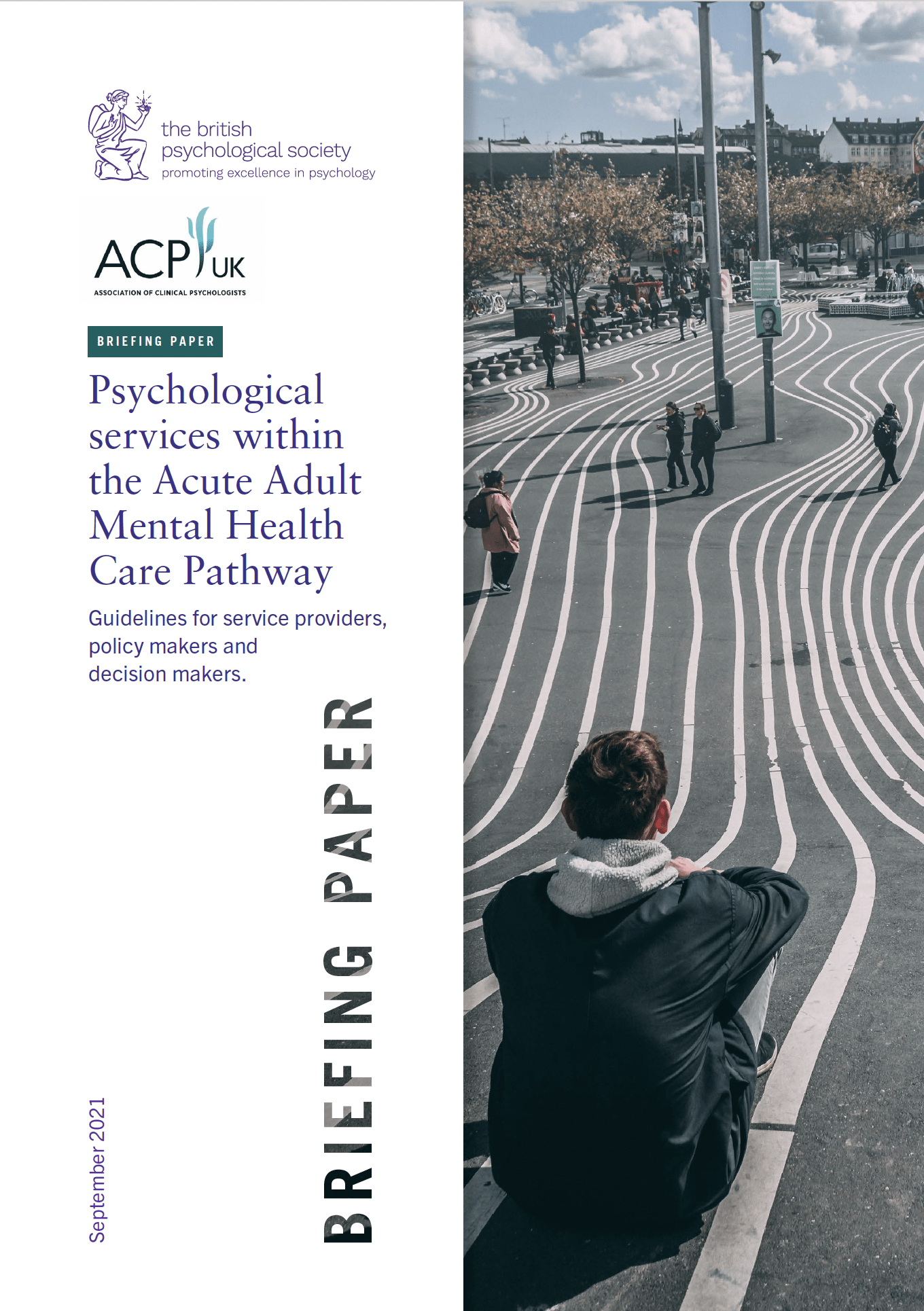New Guidance on Psychological Services within the Acute Adult Mental Health Care Pathway
The Association of Clinical Psychologists UK and The British Psychological Society have published new guidelines for service providers, policy makers and decision makers on psychology within the Acute Adult Mental Health Care Pathway.
The guidance covers Adult Mental Health Inpatient Services (AMHIS), Crisis Resolution Home Treatment Teams (CRHTT) and Mental Health Liaison Services (MHLS).
Services are experiencing increased pressure in mental health crisis care pathway nationally due to decrease in beds, workforce shortages & pressure on community services. The CQC have highlighted a lack of therapeutic acute inpatient environments, this alongside increased recognition of impact of trauma on mental health & iatrogenic harm from services has provided an impetus for change. Covid 19 and its economic impact has disproportionately affected the wellbeing of disadvantaged groups with a significant increase in mental health problems being identified, and an increase of acuity in admissions to mental health inpatient services. There is also awareness of a cultural focus on medication based care in the acute care pathway and a need to increase choice and access to psychological approaches
The guidance highlights the benefits to service users of psychological assessment, formulation and brief psychological interventions. It describes the benefits of psychologically informed group work, and family work. It also reviews the benefits of indirect psychological work in the acute care pathway, including the provision of reflective practice groups, psychological skills training and supervision, and service evaluation and research. These activities support staff wellbeing and retention, influence the culture of care enabling it to be more trauma informed, and help to improve the quality of care provision.
The guidance notes the limited psychological resources in the Acute Care Pathway. It calls for increased psychological services staffing to improve access to psychological assessment and evidence-based psychological interventions, and to support the provision of reflective practice and training in psychologically informed interventions. This would enable greater treatment choice, effectiveness and collaborative care for service users accessing crisis care.
Further recommendations are made within the document, which is a collaboration between the British Psychological Society’s Division of Clinical Psychology and the Association of Clinical Psychologists UK. You can download the full document here or by clicking on the image below.

